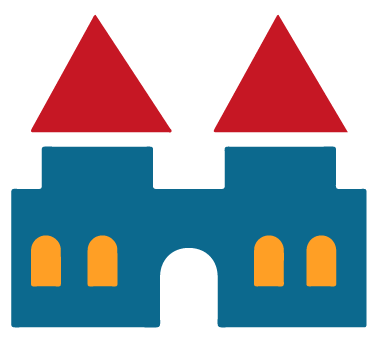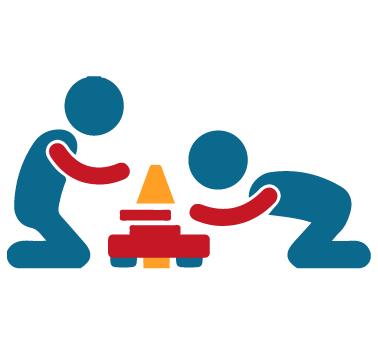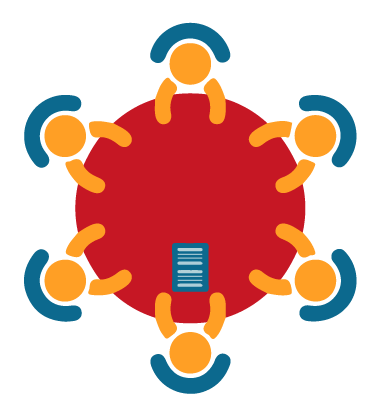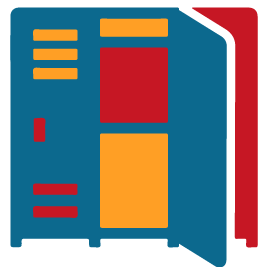ECCE
Why Early Childhood Education?
A Step Toward Holistic Development
The Early Childhood Education (ECE) Program is designed for the holistic development of children aged 3 to 6 years, following a Do, Discover, and Learn approach.
Contemporary research consistently emphasizes that the first six years of a child's life are critical for cognitive development. During this period, the foundations for analytical, creative, and logical thinking are established and nurtured. Socio-economic disparities in our society can affect this developmental phase for some children.
Our child-centric ECE program utilizes an activity- and theme-based teaching methodology, integrating various subjects to create an informal and playful learning experience. This scientific and integrated approach promotes holistic development in children. We collaborate with partners to develop customized, low-cost, reusable materials that align with their curriculum. Additionally, we conduct training workshops for teachers, co-teachers, helpers, supervisors, and parents, equipping them with the tools and techniques to impart high-quality education to children.

-
K+
Anganwadis
-
K+
Students
-
K+
Teachers
Key Elements of the ECE Programme
Anganwadi, Balwadi, nursery, or preschool often marks a child's first experience away from the familiar comfort of home and parental care. It is our responsibility to create an environment where children feel safe, secure, happy, and comfortable while they learn.
Research shows that young children learn most effectively through hands-on activities and play, while interacting with their environment. Recognizing the importance of this developmental stage, we support both government and private-sector pre-schools in establishing cost-effective, high-quality model centres.
We collaborate with the teachers at each centre to develop layouts, tailored to the specific needs of the children, considering factors such as group size and location. Emphasizing the use of local materials, we work closely with teachers to enhance the learning environment using their ideas and resources.
We work with the teachers, management, ICDS, Gram Panchayat on 2 levels:
- Crafting Four Learning Corners at their centre
- Conceptualising the infrastructure of the centres
Key Elements of Our Model Anganwadi
Crafting Four Learning Corners at their centre

Book corner
Our library corner seeks to promote pre-reading skills among children via printed material, like picture cards, charts and books. It encourages children to explore and predict stories through their imagination. Teachers can act as a guide, encouraging children to explore the stories and narrate them in their own words. Book handling and language skills can be developed effectively.

Doll house
Dramatic play helps children explore social roles and real-life experiences. Props like doctor sets, kitchen tools, and vehicles let them role-play, enhancing their understanding of relationships and social skills.

Free play & Creative corner
This corner aims to promote creativity, problem-solving, and teamwork with the use of blocks and puzzles. Children learn about shapes, sizes, and colors while building structures. Puzzles also enhance thinking, recalling, and problem-solving skills.

Creative Corner
In this corner, creativity is nurtured among children with the use colors, paper, brushes, and crayons. It enhances their fine motor skills, self-expression, and imaginative thinking while building interest in creative activities.
Key Elements of Our Model Anganwadi
Conceptualising the infrastructure of the centres

Conceptual wall painting based on the theme

Designing seating arrangement

Storage facilities
Our Process
Your Journey with Us
Need Survey
The purpose of survey is to realise the requirements of pre-school and to customize the ECE program according to the requirement.
Baseline and Endline
Aptitude tests of students and teachers are taken before starting and after the completion of the program for gauging the impact and getting feedback for improvement.
Capacity Building Workshops
Conducts workshop with Supervisors, teachers, helpers, parents and children.
Facilitation and Support
Regular visits by NEF facilitators to support teachers in classroom activities and to provide guidance to solve different types of problems while conducting classroom activities.
Demo Class
Conducting demo classes with children in the presence of the teachers to provide actual experience of activity based teaching-learning.
Teaching Learning Materials and Worksheets
Providing TLM’s along with manuals and teacher handbook, creative and concept based worksheet useful in conducting activities with children in the classroom.
Stakeholders Engagement
Providing secure,happy and friendly environment in the classroom. Creating an infrastructure considering the children group, size and location.
Monitoring and Evaluation
Monitoring of children on regular basis and taking corrective measures. Evaluation of the program and modification based on the requirement.

